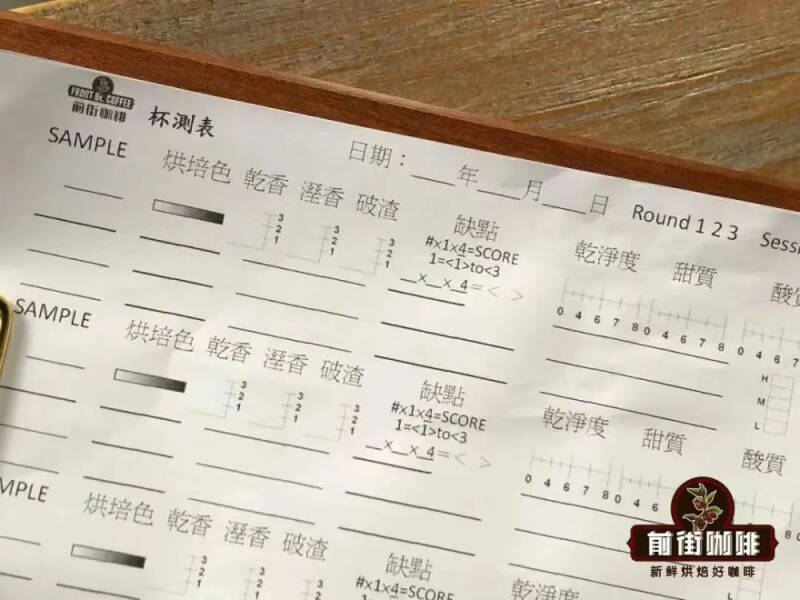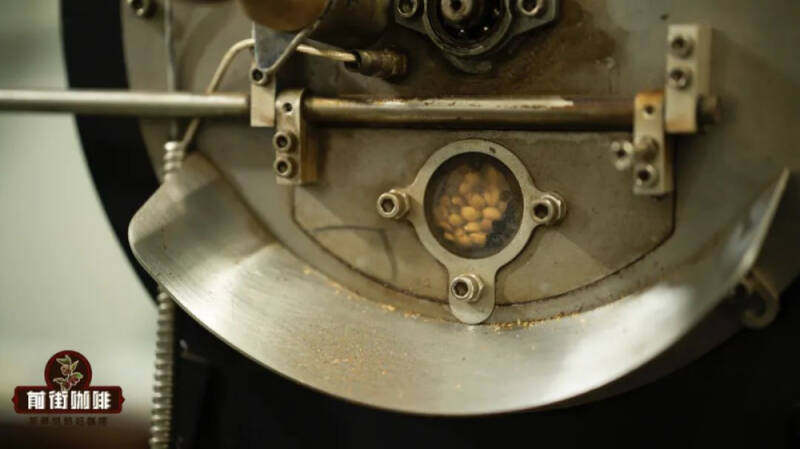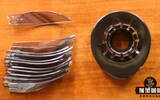What affects the cleanliness of coffee? What are the items of the COE Cup gauge? Why is Brazil the world's largest coffee producer?
"cleanliness" is the first scoring item for coffee taste in the COE cup test. If in the cup test, the coffee does not get a qualified score in the initial cleanliness, then other subsequent items will also fail. So you can see how important cleanliness is to a cup of coffee!

So, what is the cleanliness of coffee? In the field of coffee, cleanliness refers to the fact that during the tasting process, coffee does not have any negative taste or negative feelings that affect the experience. Dirt, hay and wood are the permanent representatives of negative taste, while astringency and dryness are the representatives of negative feelings.
There are many reasons for the "uncleanliness" of coffee. The harvesting, processing, roasting and brewing of coffee are all important factors that can affect the cleanliness. Let's talk about harvesting and handling first, because the reason why COE cares so much about cleanliness is largely due to the harvest and handling of Brazilian coffee that year.
Brazilian coffee is well known. Brazil is the largest coffee producer in the world! It produces 1/3 of the world's coffee and produces more than 30 million bags (60kg/ bags) a year. As a result, such a large number of artificial all-red fruit picking is naturally impossible (there was no such concept at that time), and it just so happens that most of the Brazilian coffee is planted flat, so Brazil puts in the machine to harvest it. Unlike humans, machines cannot tell whether the fruit is ripe or not, so in this case, all the mature and immature fruits are harvested by the machine.
Although, is it true that sifting beans like this won't hit you in the face? You must have eaten some unripe fruit. The feeling of green and astringent is obvious and prominent, and the taste is mediocre, which is the same for coffee. However, for Brazil at that time, coffee was already so ordinary that it could no longer be ordinary, and it did not need special treatment, so it would not be screened after harvest, but would be piled directly into the processing plant. Simple sun exposure can be exported and sold. How simple is it? Directly above the shop, the coffee fruit begins to dry. Before the concept of boutique coffee was released, most coffee-producing countries would use rough solarization to deal with coffee fruits. Rough sun drying will make the coffee fruit absorb a lot of dust, developing unearthed fishy, hay and other negative flavors. (about the rough sunburn process, you can read the previous articles on Qianjie.)
And even the processed storage, coffee beans have not been properly stored. A lot of mildew and worms are common, which will add bad taste to the coffee. So the coffee at that time could only cover up the negative taste through the bitterness developed by deep roasting. However, with the continuous improvement of baking technology, the mainstream of baking has changed from deep to shallow, and these shortcomings have been gradually exposed. So various countries began to re-apply for the upstream industry of coffee beans, harvesting and processing were improved, and eventually the quality of beans was improved. Although the quality of beans has been improved, there will still be a few defective beans, which is inevitable. So before baking, we pick out the defects in the coffee beans and then bake them. So next, let's talk about how roasting and brewing affect the cleanliness of coffee.
How does roasting affect the cleanliness of coffee? In the process of roasting coffee beans, coffee beans will produce a large amount of water vapor due to the evaporation of water in the beans, and the silver skin will detach from the silver skin due to the expansion of the bean volume. At this point, we need to increase the throttle to remove the steam and silver. If it is not adjusted in time, the thin silver skin will soon burn in the high temperature, and then become tiny charcoal particles adsorbed on the coffee beans, which we can understand as coke attached to the food. and then add charcoal and smoke to the coffee.

In addition, light roasting leads to entrapment, which will also lead to the negative taste of green and hay; and freshly baked coffee, due to the exuberant gas in the body, will not only hinder the extraction of hot water, but also lead to a sense of dryness, which is a negative feeling of sticking after drinking coffee. So these can be regarded as the miscellaneous flavor given by baking, which reduces the cleanliness of coffee.
How does brewing affect the cleanliness of coffee? This is easy to understand ~ insufficient extraction and excessive extraction! In addition to the good flavor substances, coffee will also have some negative taste. These flavors are usually released continuously with the extraction, but because of their low release efficiency, when the extraction is appropriate, they will be masked by the positive flavor. But once the extraction is insufficient, they will be highlighted: acidity, astringency, and hay are all negative feelings / tastes that affect the overall cleanliness of coffee when the extraction is insufficient.
And when we extract too much, then these humble odors will continue to accumulate, when more than a certain amount, they will no longer be covered by the positive flavor, and eventually the whole cup of coffee is full of unpleasant negative flavors such as wood and smoke. as a result, cleanliness is reduced. So we can know that the cleanliness of coffee will be affected by all aspects of the coffee industry. When a cup of coffee is cleaner, it means that the higher the quality, the more suitable the roasting, and the more appropriate the extraction when brewing.
-END-
Important Notice :
前街咖啡 FrontStreet Coffee has moved to new addredd:
FrontStreet Coffee Address: 315,Donghua East Road,GuangZhou
Tel:020 38364473
- Prev

Can you open a coffee shop in 1 square meter?! Multiple brands adopt a store-in-store model!
▲ Click to pay attention| Daily Boutique Coffee Culture Magazine Coffee Workshop In the public's impression, most coffee shops of chain brands are bright and clean, with several tables and chairs for guests to rest. Even quick pick up shops that mainly focus on takeout will also consider the storage of goods and other conditions, the size of the store will not be too small. But the first few
- Next

What is the difference between Hario's water lily filter cup and V60 filter cup? What are the characteristics of a water lily filter cup?
I believe everyone has recently been screened by the Hario family's 24-year-old filter cup, and Front Street is no exception. Because most conventional filter cups adopt a minimalist design, this filter cup quickly stands out with its unique appearance and attracts everyone's attention! It is: water lily filter cup. Most conventional filter cups
Related
- What grade does Jamaica Blue Mountain No. 1 coffee belong to and how to drink it better? What is the highest grade of Blue Mountain coffee for coffee aristocrats?
- What are the flavor characteristics of the world-famous coffee Blue Mountain No. 1 Golden Mantelin? What are the characteristics of deep-roasted bitter coffee?
- Can I make coffee a second time in an Italian hand-brewed mocha pot? Why can't coffee be brewed several times like tea leaves?
- Hand-brewed coffee flows with a knife and a tornado. How to brew it? What is the proportion of grinding water and water temperature divided into?
- What is the difference between Indonesian Sumatra Mantinin coffee and gold Mantinin? How to distinguish between real and fake golden Mantelin coffee?
- What does bypass mean in coffee? Why can hand-brewed coffee and water make it better?
- Unexpected! Ruixing Telunsu lattes use a smoothie machine to foam milk?!
- % Arabia's first store in Henan opens into the village?! Netizen: Thought it was P's
- Does an authentic standard mocha coffee recipe use chocolate sauce or powder? Mocha Latte/Dirty Coffee/Salty Mocha Coffee Recipe Share!
- What is the difference between Vietnam egg coffee and Norway egg coffee? Hand-brewed single product coffee filter paper filter cloth filter flat solution!

